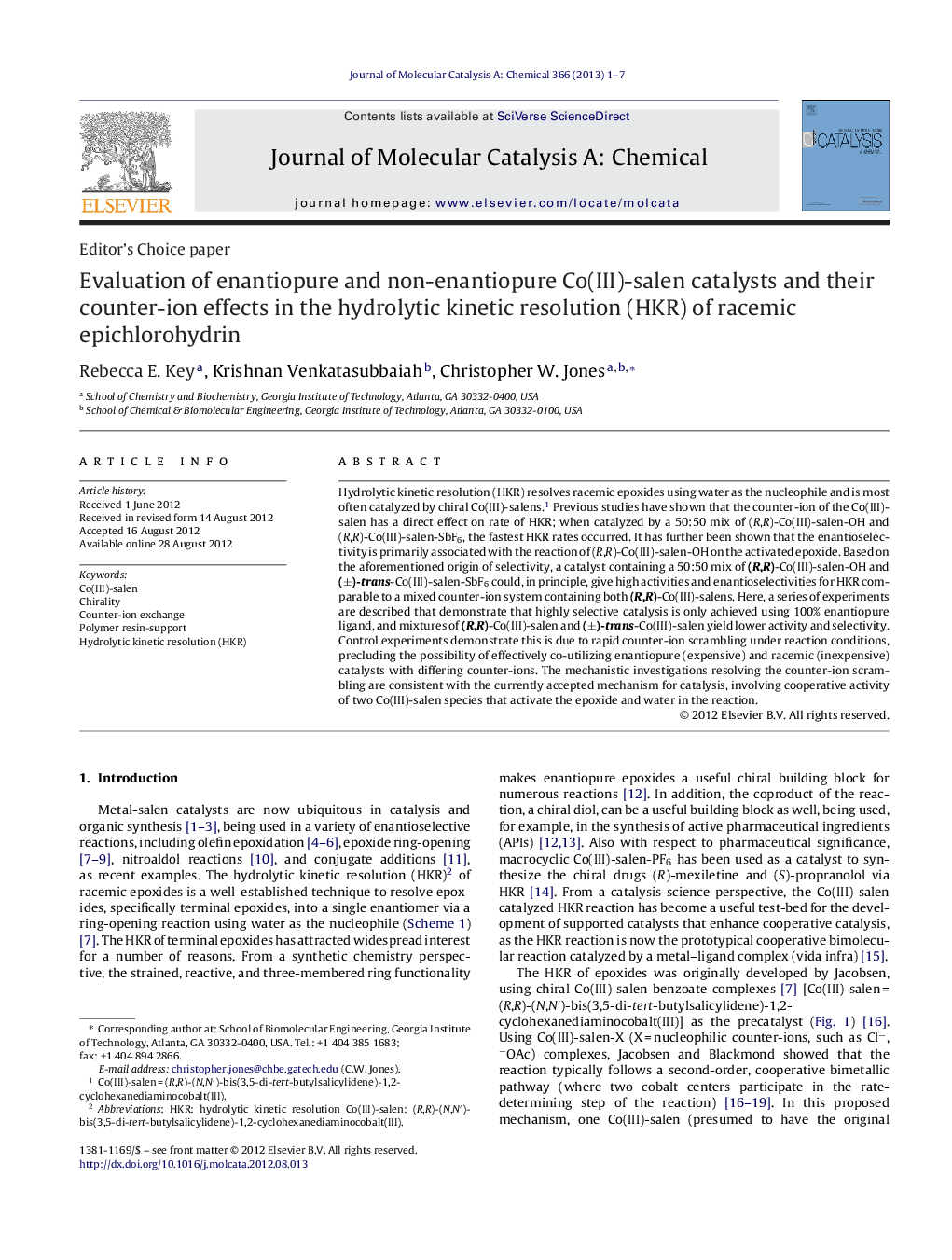| کد مقاله | کد نشریه | سال انتشار | مقاله انگلیسی | نسخه تمام متن |
|---|---|---|---|---|
| 65931 | 48410 | 2013 | 7 صفحه PDF | دانلود رایگان |

Hydrolytic kinetic resolution (HKR) resolves racemic epoxides using water as the nucleophile and is most often catalyzed by chiral Co(III)-salens.1 Previous studies have shown that the counter-ion of the Co(III)-salen has a direct effect on rate of HKR; when catalyzed by a 50:50 mix of (R,R)-Co(III)-salen-OH and (R,R)-Co(III)-salen-SbF6, the fastest HKR rates occurred. It has further been shown that the enantioselectivity is primarily associated with the reaction of (R,R)-Co(III)-salen-OH on the activated epoxide. Based on the aforementioned origin of selectivity, a catalyst containing a 50:50 mix of (R,R)-Co(III)-salen-OH and (±)-trans-Co(III)-salen-SbF6 could, in principle, give high activities and enantioselectivities for HKR comparable to a mixed counter-ion system containing both (R,R)-Co(III)-salens. Here, a series of experiments are described that demonstrate that highly selective catalysis is only achieved using 100% enantiopure ligand, and mixtures of (R,R)-Co(III)-salen and (±)-trans-Co(III)-salen yield lower activity and selectivity. Control experiments demonstrate this is due to rapid counter-ion scrambling under reaction conditions, precluding the possibility of effectively co-utilizing enantiopure (expensive) and racemic (inexpensive) catalysts with differing counter-ions. The mechanistic investigations resolving the counter-ion scrambling are consistent with the currently accepted mechanism for catalysis, involving cooperative activity of two Co(III)-salen species that activate the epoxide and water in the reaction.
Figure optionsDownload high-quality image (85 K)Download as PowerPoint slideHighlights
► HKR catalysis via molecular Co(III)-salen systems was studied.
► Co(III)-salens with 50% enantiopure ligand and nucleophilic counter-ions were used.
► This approach did not lead to enantioselective HKR catalysis.
► Counter-ion scrambling between Co centers occurred under reaction conditions.
► A novel way to regenerate deactivated polymer-supported Co(III) complexes was found.
Journal: Journal of Molecular Catalysis A: Chemical - Volume 366, January 2013, Pages 1–7